Spice Up Your Life: 10 Mediterranean Spices That’ll Turn Your Kitchen into a Flavor Paradise
If you've ever tasted authentic Mediterranean cuisine and wondered why it always seems to have that *je ne sais quoi*, here's the secret — it's not just the olive oil or the fresh veggies. It’s the Mediterranean spices. These little flavor bombs have been turning simple ingredients into culinary masterpieces for centuries.
In this article, we’ll explore what makes Mediterranean spices so special, where they come from, how to use them, and why your spice rack simply won’t be complete without them. Buckle up — we’re diving deep into the world of aromatic blends, ancient traditions, and kitchen magic!
Table of Contents
- Introduction: The Spice of Life (Literally)
- Top 10 Mediterranean Spices You Need to Know
- A Brief History: From Trade Routes to Tabletops
- How to Use Mediterranean Spices Like a Pro
- Comparison Table: Mediterranean vs. Other Regional Spices
- Pro Tips: Storing & Mixing Spices Like a Chef
- Conclusion: Make the Mediterranean Yours
Introduction: The Spice of Life (Literally)
Mediterranean cuisine is known for its vibrant flavors, healthy ingredients, and simplicity. But behind that simplicity lies a powerful secret — the strategic use of spices. Unlike other regional cuisines that may rely on heavy sauces or complex cooking techniques, Mediterranean dishes often let the ingredients shine by enhancing their natural flavors with just the right blend of spices.
Top 10 Mediterranean Spices You Need to Know
From earthy warmth to zesty brightness, these are the top Mediterranean spices every home cook should keep handy:
- Paprika – Adds color and mild heat.
- Cumin – Earthy and nutty with a hint of citrus.
- Saffron – The most expensive spice in the world, prized for its golden hue and floral aroma.
- Oregano – A staple in Greek and Italian dishes, especially tomato-based ones.
- Sumac – Tangy and lemony, perfect for adding acidity without citrus.
- Fennel Seeds – Sweet licorice notes used in Italian sausages and breads.
- Dill – Fresh and herbal, commonly found in Greek tzatziki and Turkish mezes.
- Nutmeg – Warming spice often used in festive baked goods and creamy pasta sauces.
- Rosemary – Woody and fragrant, great with roasted meats and potatoes.
- Coriander – Slightly citrusy and floral; both seeds and ground form are used.
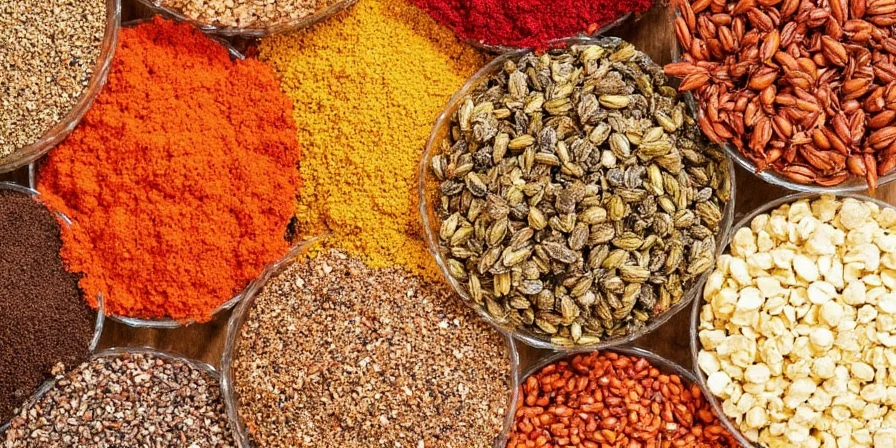
A Brief History: From Trade Routes to Tabletops
The Mediterranean region has long been a crossroads of cultures, trade, and culinary innovation. Spices were once considered treasures worth more than gold, traded along the Silk Road and maritime routes that connected Europe, Asia, and Africa.
Countries like Greece, Turkey, Egypt, Morocco, Italy, and Spain became melting pots of spice usage due to their access to these valuable commodities. Cumin and coriander were already in use during ancient Egyptian times, while saffron was cultivated in Crete over 3,500 years ago.
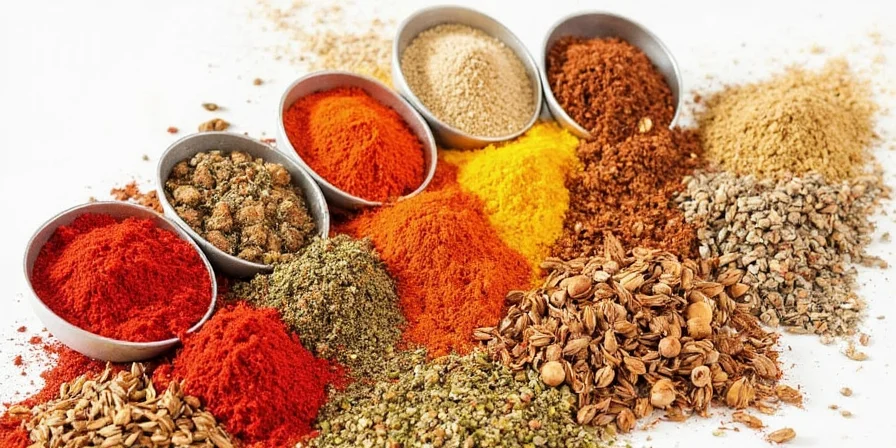
How to Use Mediterranean Spices Like a Pro
Using Mediterranean spices effectively requires a bit of knowledge and finesse. Here are some classic pairings and techniques to get you started:
- Grilling: Mix paprika, oregano, garlic powder, and olive oil to make a rub for grilled meats.
- Vegetable Roasting: Sprinkle sumac over roasted eggplant or zucchini for a tangy finish.
- Rice Dishes: Add a pinch of saffron to risotto or paella for color and fragrance.
- Salads: Toss fresh herbs like dill and parsley into grain salads for a refreshing kick.
- Baking: Nutmeg and cinnamon appear in everything from Italian biscotti to Turkish baklava.
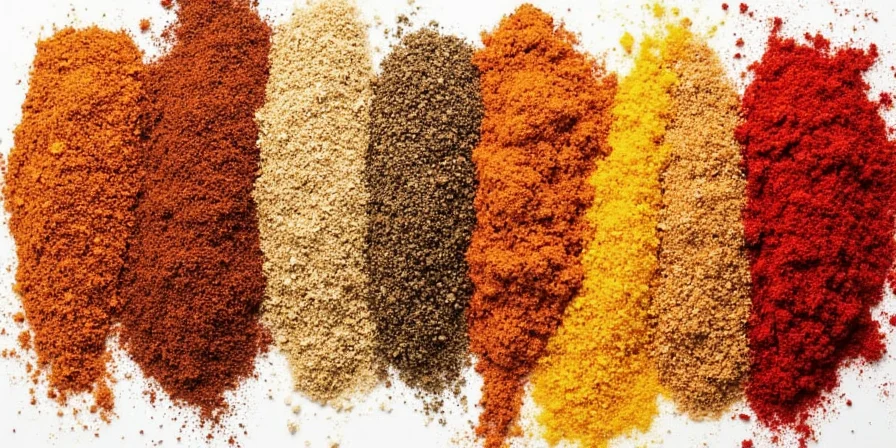
Comparison Table: Mediterranean vs. Other Regional Spices
| Region | Common Spices | Flavor Profile | Best For |
|---|---|---|---|
| Mediterranean | Oregano, Rosemary, Sumac, Saffron, Coriander | Herbaceous, earthy, citrusy, aromatic | Tomato sauces, grilled meats, vegetable dishes |
| Indian | Cumin, Turmeric, Garam Masala, Cardamom | Complex, warming, sweet-spicy | Curries, stews, rice dishes |
| Mexican | Chili powder, Cumin, Paprika, Oregano | Smoky, spicy, bold | Tacos, salsas, beans |
| East Asian | Star Anise, Sichuan Pepper, Five Spice, Ginger | Woody, numbing, aromatic | Stir-fries, marinades, noodle dishes |
Pro Tips: Storing & Mixing Spices Like a Chef
Want to keep your Mediterranean spices fresh and potent? Follow these tips:
- Store in airtight containers away from heat and light to preserve potency.
- Buy whole spices when possible and grind as needed — fresher = better flavor.
- Don’t store near the stove — excessive heat can degrade flavor quickly.
- Label your spices clearly so you know what’s what, especially if you mix your own blends.
- Experiment with combinations: Try making your own za’atar or herbes de Provence blends at home!
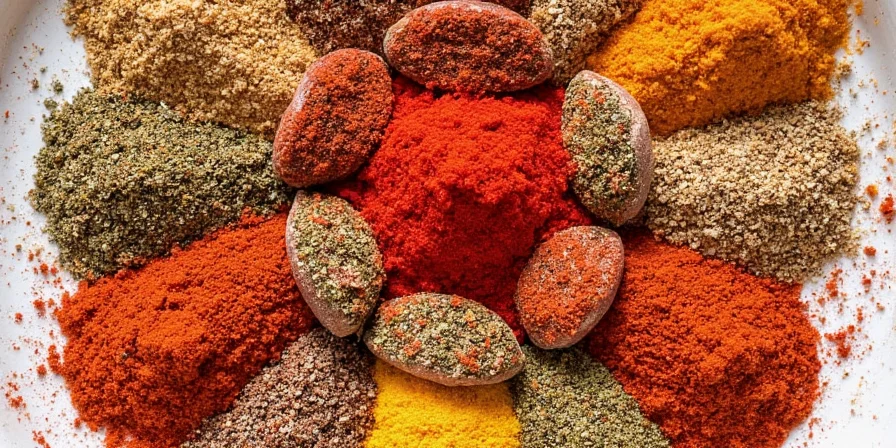
Conclusion: Make the Mediterranean Yours
Mediterranean spices aren't just about flavor — they're a way of life. They bring warmth to the table, joy to the kitchen, and health benefits that go beyond taste. Whether you're grilling lamb chops, roasting vegetables, or baking a rustic bread, these spices are your ticket to transforming everyday meals into something magical.
So go ahead — raid your pantry, experiment boldly, and don’t be afraid to sprinkle a little extra oregano. After all, life’s too short for bland food!

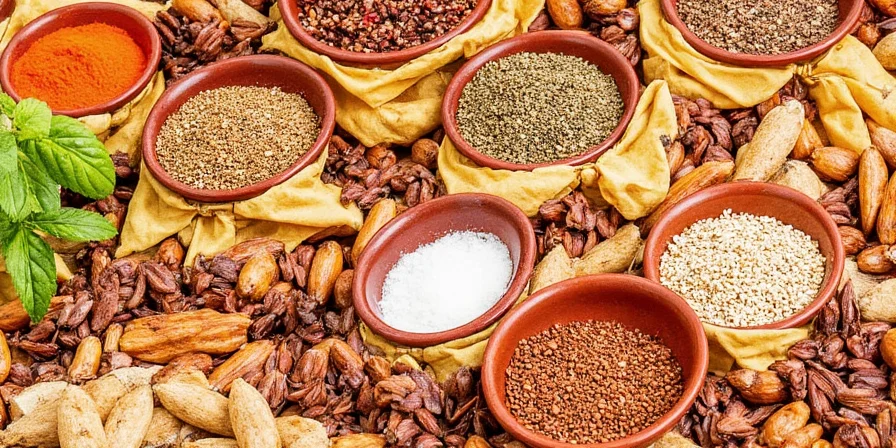









 浙公网安备
33010002000092号
浙公网安备
33010002000092号 浙B2-20120091-4
浙B2-20120091-4